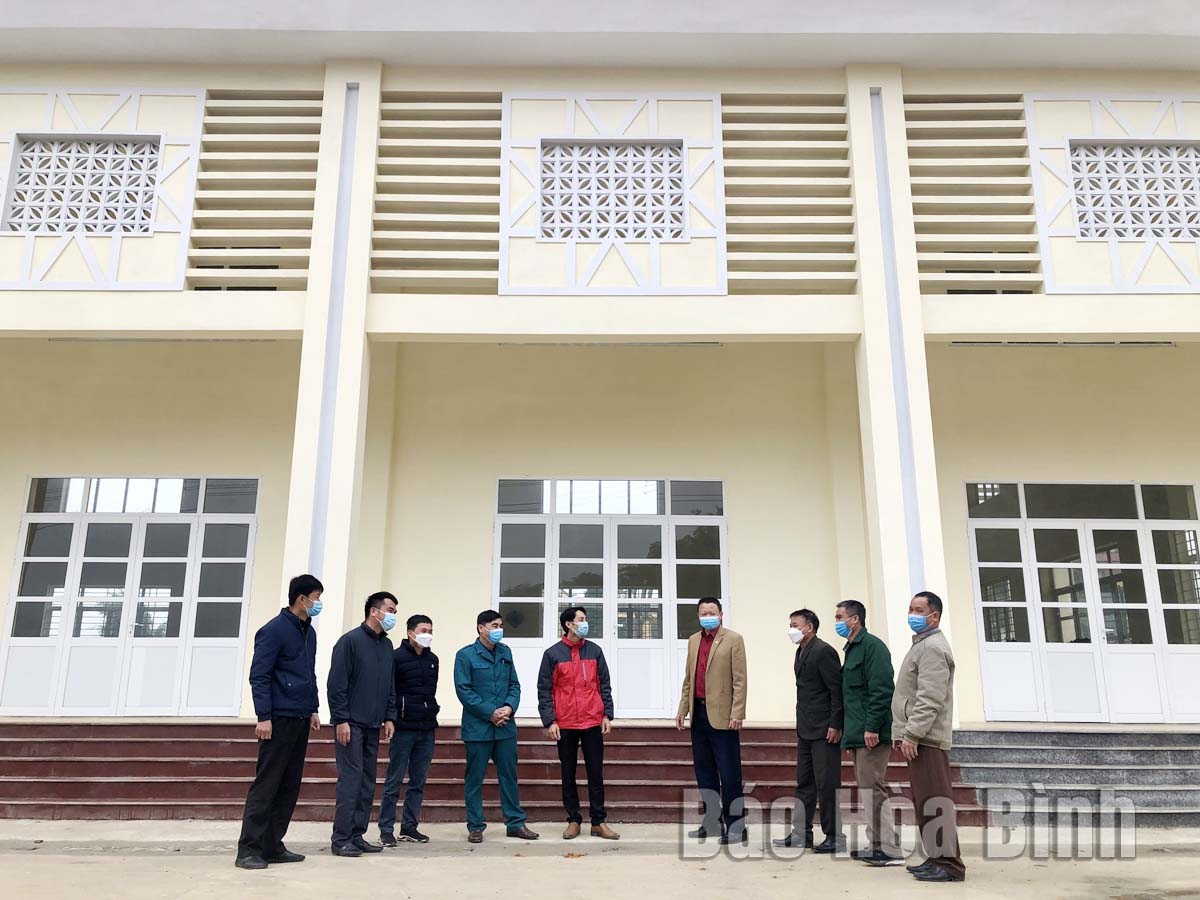
(HBO) – In early days of the spring, we visited Bac Phong commune in Cao Phong district and witnessed its new look of big concrete roads, standard cultural facilities, and nice houses.

A freshly built cultural house in Bac Phong.
A high consensus between the residents and local authorities
is a key factor that has changed the lives of Bac Phong people. The authorities
have linked the practice of democracy with new-style rural building, under
which all guidelines, plans, and implementation of construction works are
discussed publicly to collect people’s feedback. These, together with the
publicity and transparency in using people’s donations, have consolidated their
trust in the local Party organisation and administration.
As a result, in the 2017 – 2021 period, 86 local households
donated nearly 5,000m2 of land for the building of key projects, mostly rural
roads. Along with that, people developed a good sense of protecting the
environment in their residences and public places.
Bac Phong’s infrastructure has seen significant changes,
with 100 percent of inter-village roads asphalted, 76 percent of canals
upgraded, and 100 percent of households using electricity regularly and safely.
The rate of the locals participating in the health insurance network neared 90
percent, the average per capita income was 40 million VND (1,752 USD) a year,
while the poverty rate decreased significantly from 34.4 percent in 2011 to 2.7
percent in 2021.
Khuong Xuan Lich, Chairman of the Bac Phong People’s
Committee, affirmed the practice of democracy has created consensus in the
community and laid the foundation for the success of the commune today.
He highlighted the need for further efforts toward
fulfilling advanced criteria in building new-style rural areas. The work can be
done via good communications, active participation of locals, and a specific
plan, the official noted./.
In the spirit of "Party members go first, the people follow”, all households of Party members in the Doan Ket sub-region in Da Bac town, Da Bac district, voluntarily removed gates and fences, and donated land when the road expansion project passed through their properties. Inspired by their example, 68 households in the sub-region quickly followed suit, contributing over 1,400 sq.m of residential and perennial cropland to widen the main road through the residential area. The exemplary role of Party members in Doan Ket stands as a shining example of studying and following President Ho Chi Minh’s thought, morality, and lifestyle.
The Hoa Binh provincial People's Committee held a monthly meeting on May 29 to assess the implementation of socio-economic development tasks in the first six months of 2025, the progress of key projects, and some other important issues.
During his lifetime, President Ho Chi Minh always expressed his deep affection and special concern for children and youth. He once emphasized: "Caring for and educating children well is the responsibility of the entire Party and the entire people”; "First of all, the family (i.e. grandparents, parents, siblings) must do this job well”. "the Party Committees…, the Children’s Committee, the Youth Union, the education sector, and all related organizations must have specific plans to ensure children grow healthier and more progressive”. His teachings has been remaining valuable and serving as the guiding principles in the work of protecting, caring for, and educating children. In line with this ideology, Hoa Binh Province has continuously been prioritizing and investing resources in the well-being of children in recent years.
Mr. Nguyen Phi Long, the alternate Member of the Party Central Committee and Secretary of the Provincial Party Committee chaired the meeting of the Standing Committee of the Provincial Party Committee to provide opinions on several investment projects within the province. There was the attendance of Ms. Bui Thi Minh, the Permanent Deputy Secretary of the Provincial Party Committee and Chairwoman of the Provincial People’s Council; Mr. Bui Đuc Hinh, the Deputy Secretary of the Provincial Party Committee and Chairman of the Provincial People’s Committee and other members of the Standing Committee; the leaders from other departments, agencies, and some localities.
The Standing Board of the Vietnam Fatherland Front (VFF) Committee of Hoa Binh province held a meeting on May 28 to honour outstanding village elders, village heads, and reputable individuals from local ethnic minority and religious communities.
In mid-May, the provincial Museum organised an exhibition named "Duoi la co Dang Cong san Viet Nam quang vinh” (Under the flag of the glorious Communist Party of Vietnam). This meaningful activity took place in the joyful atmosphere to celebrate the country's major holidays and the Party congresses at all levels for the 2025-2030 term, towards the 14th National Party Congress.



